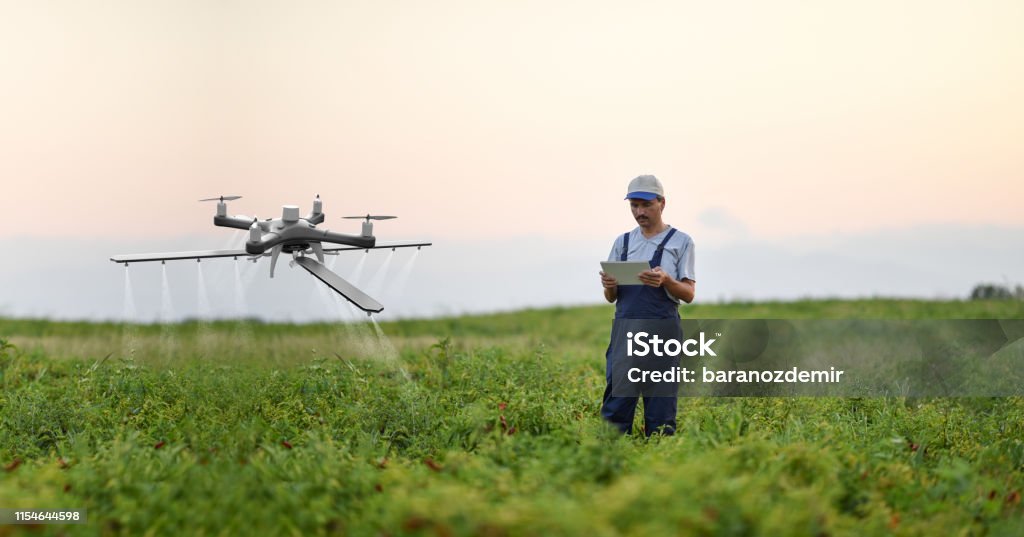Why Sustainable Farming is Essential: 7 Unbeatable Reasons for Our Future
Discover why sustainable farming is the game-changer for the future. Understand through common questions how this eco-friendly approach is reshaping our world, ensuring food security, and preserving our ecosystem.

The concept of sustainable farming has been gaining traction worldwide, and for good reasons. The method is not just about producing food; it’s about being a steward of the environment and safeguarding it for future generations. In this article, we dive deep into why sustainable farming is the future, answering common questions and debunking misconceptions.
Why Sustainable Farming is the Future: Common Questions Answered
The need for sustainable farming practices has never been more apparent. As the global population continues to grow, so does the demand for food. Traditional farming methods often lead to deforestation, water scarcity, soil degradation, and significant contributions to climate change. Sustainable farming, on the other hand, offers solutions to these pressing issues, balancing current needs with future demands responsibly.
The Core Principles of Sustainable Farming
At the heart of sustainable agriculture are principles that ensure the health and welfare of all involved, from the soil and insects to the farmers and consumers. These core values promote biodiversity, prioritize renewable resources, and focus on environmental preservation. Adherence to these principles is what sets sustainable practices apart from conventional farming methods.
Environmental Benefits: More Than Just Farming
Sustainable farming goes beyond the boundaries of the agricultural field. The environmental benefits include preserving local ecosystems, improving soil health, reducing water usage and contamination, and mitigating the impacts of climate change. By embracing these practices, farmers actively contribute to a healthier planet.
Economic Stability and Rural Development
One common misconception is that sustainable farming isn’t economically viable. However, by diversifying crops, reducing input costs, and investing in community-based markets, farmers can achieve economic stability. Additionally, sustainable practices drive rural development, create jobs, and foster a sense of community.
Nutritional Advantages and Food Security
Food produced through sustainable methods is often more nutritious, containing higher levels of essential vitamins and minerals. These practices also play a crucial role in food security, ensuring that populations have consistent access to quality food, regardless of unpredictable environmental conditions or market dynamics.
Innovations Driving Sustainable Agriculture Forward
Technological advancements and innovative thinking are propelling sustainable agriculture into the future. From precision farming through drones and satellite monitoring to advances in natural pest control and organic fertilizers, modern innovations are continually enhancing sustainable practices.
Global Policies Supporting Sustainable Farming
Recognizing the urgent need for environmental preservation, governments worldwide are rolling out policies that support sustainable agriculture. These range from subsidies and tax breaks for green practices to educational programs and resources for sustainable farmers, further emphasizing the global shift towards this responsible form of agriculture.
Community and Social Impact
Sustainable farming has a profound social impact. By supporting local agriculture, communities strengthen their local economies, provide educational opportunities, and promote social interaction. These communal benefits are integral to the holistic nature of sustainable practices.
The Role of Consumers in Promoting Sustainable Agriculture
Consumers wield significant power in promoting sustainable farming by choosing where and how they spend their money. By purchasing products from local, sustainable sources, consumers can drive demand for responsible farming practices, contributing to a larger global movement towards environmental preservation.
How to Transition to Sustainable Farming Practices
Transitioning to sustainable farming requires a shift in mindset. This comprehensive guide provides practical steps, from soil and water management to community engagement and seeking support through government programs. It’s a journey that requires commitment but offers invaluable rewards for farmers and society.
FAQs
What differentiates sustainable farming from organic farming?
While both practices emphasize environmental preservation, sustainable farming encompasses a broader range of practices, including economic and social aspects, whereas organic farming strictly pertains to the non-use of synthetic substances in agriculture.
How does sustainable farming impact climate change?
Sustainable agriculture plays a critical role in mitigating climate change. By reducing greenhouse gas emissions, enhancing carbon sequestration in soil, and utilizing resources efficiently, sustainable practices help significantly lower the carbon footprint of agricultural production.
Is sustainable farming more expensive to practice?
Initially, transitioning to sustainable methods can be cost-intensive due to infrastructure changes and new equipment. However, over time, reduced input costs, enhanced soil fertility, and higher product demand can make it more cost-effective than conventional methods.
Can sustainable farming methods keep up with global food demand?
Yes, through efficient resource management, crop diversification, and waste reduction, sustainable farming can produce high yields over time, meeting global food demand while maintaining environmental health.
Why should consumers care about sustainable farming?
Consumers play a pivotal role in the demand for sustainably produced goods. Their choices can drive market demand, influencing producers to adopt sustainable practices, which are crucial for environmental preservation, public health, and food security.
What are the first steps a farmer should take towards sustainable practices?
Farmers wishing to adopt sustainable practices should first educate themselves on sustainable methods applicable to their region. Next, they can implement soil and water conservation techniques, diversify their crops, and reduce chemical inputs, gradually aligning their operations with sustainable principles.
Conclusion: Embracing a Sustainable Future
Understanding why sustainable farming is the future requires recognizing the interconnectedness of our global ecosystem. The practices used today directly impact the world we live in tomorrow. By adopting and supporting sustainable agriculture, we are not only preserving the environment but also ensuring nutritious food, economic stability, and a healthier life for all.
By embracing sustainable farming, we invest in a resilient food system capable of withstanding the challenges of today and the uncertainties of the future. It’s a collective journey towards a more responsible and secure global agricultural landscape.

